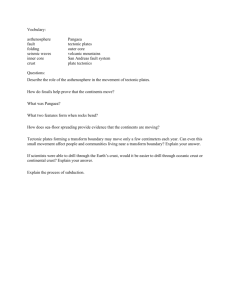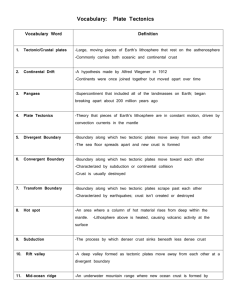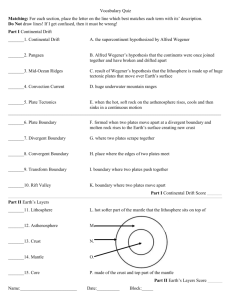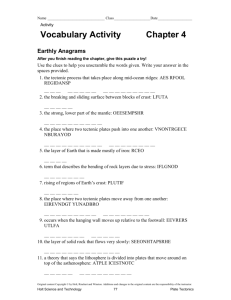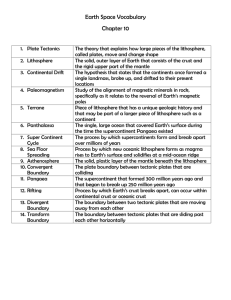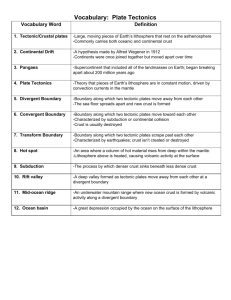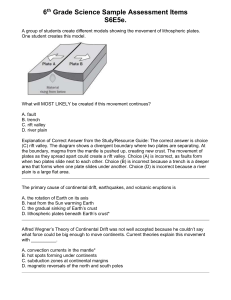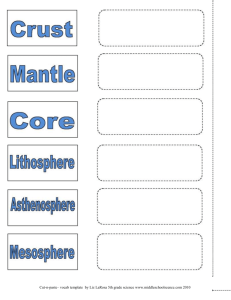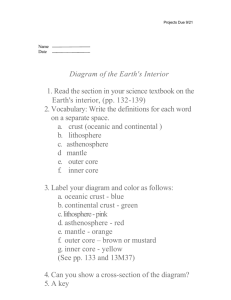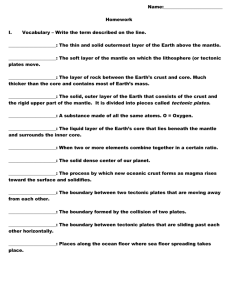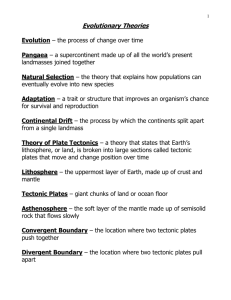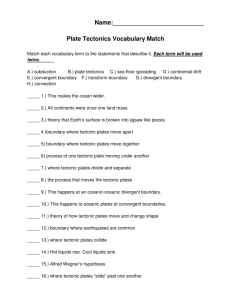Ch.4 Test Targets Week22 - Petoskey Public Schools
advertisement
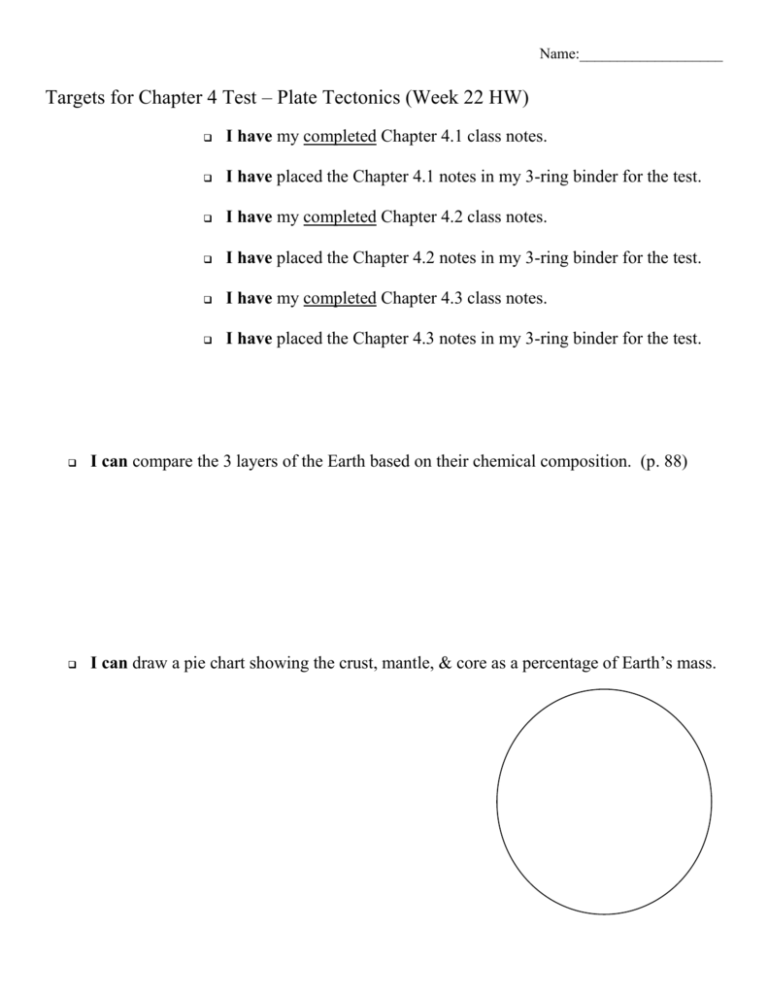
Name:___________________ Targets for Chapter 4 Test – Plate Tectonics (Week 22 HW) I have my completed Chapter 4.1 class notes. I have placed the Chapter 4.1 notes in my 3-ring binder for the test. I have my completed Chapter 4.2 class notes. I have placed the Chapter 4.2 notes in my 3-ring binder for the test. I have my completed Chapter 4.3 class notes. I have placed the Chapter 4.3 notes in my 3-ring binder for the test. I can compare the 3 layers of the Earth based on their chemical composition. (p. 88) I can draw a pie chart showing the crust, mantle, & core as a percentage of Earth’s mass. I can provide the average thickness of oceanic crust and continental crust. (p. 88) I know I know which crust (ocean or continental) is more dense or less dense. (p. 88) I can compare and contrast the Earth’s inner and outer core. (p. 91) I can provide two details about the asthenosphere. (pp. 90-91) I can provide two details about the lithosphere. (pp. 90-91) I can provide two details about the mesosphere. (pp. 90-91) I can explain which layer of the earth the tectonic plates are part of and which layer they float on. (p. 92) I can name the “super-continent” and explain the 3 types of evidence to support it. (p. 95) I can explain how sea-floor spreading and convection currents provide a way for continents to move. (pp. 97 and 99.) I can explain and provide an example of a transform boundary. (pp. 100-101.) I can explain and provide an example of a convergent boundary. (pp. 100-101.) I can explain and provide an example of a divergent boundary. (pp. 100-101.) Targets for Chapter 4 Test – Plate Tectonics (page 4.) I can correctly match the vocabulary terms to their definition. (pp. 86-102) a) Two tectonic plates colliding with each other occur in this region b) An example of a transform boundary c) Hot mantle rises and cool mantle sinks creating a circular motion that moves plates d) An underwater chain of mountains e) Two tectonic plates sliding past each other horizontally f) Pieces of the lithosphere that move around on top of the asthenosphere g) Made of iron & nickel and the size of Mars h) When the Earth’s North and South poles change place i) When tectonic plates move apart in opposite directions j) Wegener’s theory that tectonic plates move apart k) New lithosphere is formed near mid-ocean ridges l) The region where oceanic plates sink under the continental plates into the asthenosphere Transform boundary Divergent boundary Convergent boundary Subduction zone San Andreas fault Convection current Sea-floor spreading Continental drift Tectonic Plates Earth’s core Magnetic reversals Mid-ocean ridge
